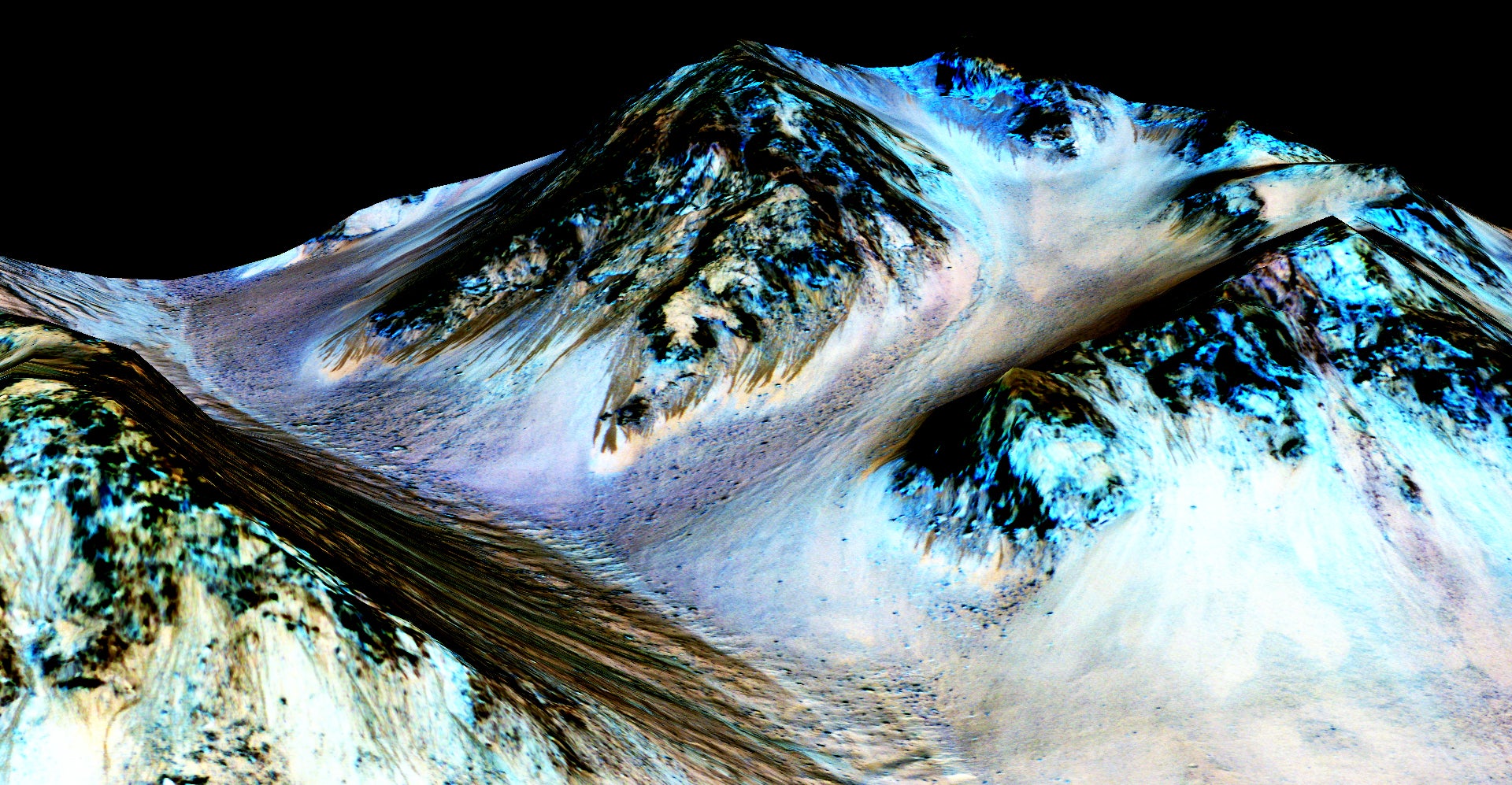Nasa discovers flowing water on Mars, but contamination fears put further investigation in doubt
Fears that a Mars rover carrying contaminants from Earth could pollute the water streaks mean investigation may have to wait

Nasa may have recently answered a decades-old question about flowing water on Mars, but now they face a new issue - how to research the nature of this water without contaminating it.
Nasa's state-of-the-art Curiosity rover, currently on Mars and around 30 miles from one of the most promising areas for research of the water, would be in the best position to investigate the nature of the water further.
However, Curiosity is not sterile - it may be carrying bugs and microorganisms from Earth, which would potentially contaminate the water, disrupting future scientific investigations and breaching regulations on polluting other planets.
Tthe Committee for Space Research specifies that extraterrestrial landers looking for life must be very clean, to avoid any Earthly dirt contaminating the foreign planet.
Rovers going to areas on Mars with damp recurring slope lineae (RSL) - the tell-tale streaks that prove liquid water flows on Mars - will have to be sterile, to stop any potential contamination.
As reported by The Guardian, Nasa's planetary science division director Jim Green thinks that the ultraviolet light on Mars may have killed any microorganisms that Curiosity may have brought with it, making it sterile and suitable to approach the RSLs - but other research suggests that the dust on the planet's surface could have protected the microbes and made it easier for them to survive.
A joint European and Russian Mars mission carrying a sterile rover that will drill into the planet's surface is planned for 2018, so this could potentially shed some more light on the makeup of the Martian surface.
Until then, debates about what Curiosity can do to investigate the water will go on.
Speaking to The Guardian, Andrew Coates, from University College London's Mullard space science laboratory, said "heated discussions" about whether Curiosity will even be able to go near the RSLs will come in the next few months.
Join our commenting forum
Join thought-provoking conversations, follow other Independent readers and see their replies
Comments